They all recount personal experiences reminiscent of forgotten incidents of persecution from Jewish history. They are businessmen, researchers and media professionals from ultra-Orthodox society who live the Israeli reality on a daily basis, and precisely because of this, they experience with greater intensity the shockwaves of incitement against them, which is gaining traction in light of the budget discussions and the establishment of the government in general. In the interviews that will comprise this document, I did not speak "about the ultra-Orthodox," as has been done recently from every platform, but rather "with the ultra-Orthodox" who see themselves as a bridge between worlds and who share one pessimistic prediction: the attacks against ultra-Orthodox society are reversing their natural integration into Israeli society.
"All that's happening right now is a kind of explosion of an abscess, which all these years has existed at one level or another and we've pushed it under the skin. Now, when they try to topple the government, they took the public that is easiest to punch and doesn't know how to answer, and which in my opinion has been making a mistake all these years by not having the right media and the right spokespeople, and put it at the stake," says businessman and owner of the Halperin Optics chain, Yaakov Halperin. "I learned in marketing that the louder you shout, the better you can sell, so strategists here decided that they don't care about unity or the people of Israel and Judaism – they're interested in winning.
"These are campaigners who think from morning to night how to fan hatred. Nazism, on the other hand, also began with brainwashing. In Kenya, two weeks ago, 400 people starved themselves to death because the cult leader preached it. At the moment, the motif of persuading the shallow people, those who are dragged by clichés and incitement, is aimed at Jews wearing kippahs. It starts with a Knesset member and then a minister allowing himself to use words like 'we'll throw them in wheelbarrows,' and it becomes cheap to hurt another. They take people who genuinely stand guard over the state and work for a living, and tell them that every person who wears a kippah is a leech, a bloodsucker, a parasite. In the end, some message is received. And what does his child see? His father says: 'Oh, these religious people.' We have become hated by the people."
"How can you come and say that we are all, dodgers and looters?" Yaakov Halperin, Photo: Jonathan Halperin
Halperin, who wears a kippah, 59, served in the army and served in the reserves, and employs thousands of workers from all sectors of society, sounds very painful. "How can you come and say that we are all, dodgers and looters? I'm going to the airport now and I see a 'looting government' sign. Why? What are we waiting for? That one nuclear bomb will unite us? Shall we run together to the shelter, ultra-Orthodox and secular? Shall we be brothers in trouble? This week I was at Azrieli Towers, standing in an elevator with three people and feeling hatred. I wasn't afraid, but I felt hostility, a stranger. Like being a white man in Harlem 20 years ago. Someone needs to stop it, and fast."
The feeling of alienation is joined by all those interviewed in the article. Against the background of the demonstrations in Bnei Brak, the scattering of the banknotes as an act symbolizing haredi greed, the harsh expressions in the media against the haredim (cf. Galit Gutman) and the cartoons that leave little room for imagination, it seems that it is more difficult these days to be ultra-Orthodox in the Israeli space. "I'm telling you a complex thing – I think it's fundamentally not penetrating into Haredi society, but it's very present in the people who are bridges," says Odelia Frosh, owner and CEO of the large ultra-Orthodox consulting firm Go Up.
"It starts with meat allowing itself to use words like 'we'll throw them in wheelbarrows,' and it becomes cheap to hurt another. Then they say that every kippah wearer is a leech, a bloodsucker, a parasite. In the end, the message was received."
"This is felt by people who work in Tel Aviv and return to Beit Shemesh or Bnei Brak, those who spend a lot of time on social media and those who represent ultra-Orthodox society. If you really think that way even though you know us so much and intend to hate us. And don't tell me I'm not like everyone else. When you look at me face to face and I ask, 'You mean me?' and I'm told, 'No, that's something else,' what do you mean? Everyone is something different. These days there are places where I wonder if it's okay for me to open my mouth, and until a few days ago we all worked together."
"Hard in secular spaces"
The spirit reflected in the speakers' mouths is frightening. The face of Israeli society is painted in the colors of religious fanaticism, not necessarily the ultra-Orthodox one. Despite the need to integrate the ultra-Orthodox, study the core curriculum, and enter the labor market, it seems that this is not a value discussion about facts and a call for correction, but rather a war. Hatred for its own sake.
"We are in a social event of precipitation that has been for many years and is floating now. Israeli society is very divided, much more than other societies, on the ethnic, religious, economic, and other levels, and to this is added the Jewish and democratic equation, which says from the outset that our identity is complex," says Dr. Nahumi Yaffe, a faculty member in Tel Aviv University's Department of Public Policy, the first ultra-Orthodox woman to hold this position in Israeli academia, and vice president for research at the Real Data Institute.
Dr. Nahumi Yaffe, Photo: Oren Ben Hakon
"In times of trouble, it gets difficult. The great rifts are unraveling and you see the hatred growing. I think there's something in the Jewish DNA of controversy. It's not a mistake that we sanctified a text of controversy, the Talmud, but sometimes controversy takes over us in a toxic way. There is something very opinionated about Jewish energy – it speaks of truth, not peace, and it breaks us apart, as has happened in history."
Why is this happening now? According to Dr. Yaffe, the background is the dispute over the identity of the state as reflected in the protests. "It was a civics lesson for the whole country. People have woken up and are afraid of the demographic outlook and the lack of core education, which means that the ability of these young people to integrate into the labor market is limited. What will the modern state look like in a few years? And that brings out the less beautiful parts of all of us and Galit Gutman's very disgusting statement."
Dr. Nahumi Yaffe: "I am a faculty member at Tel Aviv University and I hear expressions like this all the time. Galit Gutman just said it out loud and it's very scary. It reflects something that happens precisely when the ultra-Orthodox public opens up to Israeliness."
In Dr. Yaffe's day-to-day life, even before the latest wave of hatred, she encounters harsh statements against the public from which she comes. "I am a faculty member at Tel Aviv University and I hear expressions like this all the time. Galit Gutman just said it out loud, and it's very scary. It's not her who is scary – she reflects something that happens precisely when the ultra-Orthodox public opens up to Israeliness. If he had been so withdrawn, he would not have been in the Knesset. There's something about the opening up of ultra-Orthodox society that people seem to say to themselves, 'Here, they can,' and therefore don't want to give them up, and then there's anger."
Integration in withdrawal
Recent history teaches us that precisely when the ultra-Orthodox sector is attacked, it retreats. According to Odelia Frosh, owner and CEO of the large ultra-Orthodox consulting firm Go Up, the impact rejects changes. "There is soul-searching in the ultra-Orthodox sector, but it's hard to do it when you have to defend yourself. During an attack you stand on your hind legs and try to save what you can. On the level of detail, there is a great deal of desire to explain – we have sinned in explaining and we have sinned in differentiation of thought. No one in the secular sector understands why the value of Torah study is so important. If we talk about it, they'll understand that there's something else here, and even if they don't agree with us, they'll eventually understand this value for us."
"True, it's not good," says Dr. Yaffe, "There are many Haredim who are in the Israeli fabric and are not going to retreat now, but at the level of recruiting new people to integrate there may be a problem. Just now someone who is considering going to school told me: 'Look how they talk, I'm scared.' And I had nothing to say to her. She's right. They won't speak well to her, they don't speak well to me either. We need to develop immunity. It's not fun to be in secular spaces now. You're immediately suspicious, and no matter what you think, you're straight away part of a very hated bloc, and it doesn't matter that you've sacrificed your whole life to fix some of it.
Israel Cohen, Photo: Yehoshua Yosef
"It's not fun to hear people you love talk so hard about other people you love. I understood even more now than during Corona that this is the price you have to pay when you are between worlds, that this spaghat will sometimes hurt. That's part of the price, and I decide I'm not offended and continue to do what I think is right. But there are courses that I won't teach now, or the way I present things when I talk about studying Torah or about enlisting in the army – I'll say other things. I usually dare to take students to the extremes, but in the current climate I will give up. I don't want to encourage controversy and hatred now, I accept responsibility for it in my own worlds."
"Lapid would have given twice as much"
The price of living between worlds is also discussed by ultra-Orthodox media personality Avi Mimran. "I walk around Tel Aviv and feel like I'm walking around Paris or Berlin. That I need a cap and not emphasize Haredi symbols too much. You're here in Israel, but the atmosphere on the street and the looks aren't pleasant at all, and every time I have to remind myself, 'You're here in the State of Israel.'"
But do you understand the secular perspective that calls for you to fit in?
"Understand, sure. And we need to understand and wake up, but under incitement we won't be able to do that. Under demonstrations, you make moderates extremist and everyone entrenched. I did the army and regret it today. What did I need it for? Being exceptional in the sector and it doesn't help me. Let me tell you something: Even if all the ultra-Orthodox served in the army and paid taxes, they would be treated like settlers. After all, they all pay taxes and serve, and they are no more loved than the ultra-Orthodox. That's not the story at all. Hatred for the ultra-Orthodox flourishes because the right is in power thanks to the ultra-Orthodox, and the left will never be in power without the Haredim or the Arabs, and that's the story. This is where it starts and this is where it ends."
Yisrael Cohen: "The ultra-Orthodox public is becoming more Israeli, but not in the way that the demonstrators in Kaplan want. They are more in a model like Smotrich, like Modern Orthodox in the United States, they do not become Democrats but Republicans."
Media personality Yisrael Cohen feels that the ultra-Orthodox sector is being turned around and is not coming to fix it. "When I talk to secular people, I distinguish between the protest leaders, who turn around the ultra-Orthodox, and a lot of the public that is taken prisoner. It is said that the ultra-Orthodox public received NIS 14 billion in coalition funds. After all, only half of that goes to the ultra-Orthodox parties, and that, too, is distributed in two years. But set it as an axiom, and the ordinary person on the street thinks that all this is going to the ultra-Orthodox. There is a failure on the part of the ultra-Orthodox politicians and also a failure on the part of hasbara, which will explain where the money is really going."
And Mimran adds: "For the avoidance of doubt, if we had gone to Lapid's government, we would have received twice as much on each item. Benny Gantz said: 'There is a blank page here and I am signed.' This is an ultra-Orthodox budget that requires discrimination correction, there is no addition here. I can build you a budget that the ultra-Orthodox taxpayer doesn't want to pay for. According to the Central Bureau of Statistics, 80% of Haredi women and 53% of Haredi men work. The gap in the end is 17% in the employment rate. It may be too much, but those 17% who don't pay direct tax, they pay indirect tax like any lady in Herzliya. Is it bloodsucking? Is it the robbers of the public purse?
"These are empty slogans of empty people who say, 'Suck our blood,' and in the end it washes over the Israeli public. We are 12% of the Israeli public, and in the media we are zero. If I take all the leading news sites and newspapers and channels - we are zero. We have no way to respond, no tools. You're vilified and persecuted – they're taking you off the pitch and putting you in exiles. We got to a situation where I have to tell people: 'I'm Avi Mimran, who served in the army and pays taxes and is ultra-Orthodox, walking around Tel Aviv and feeling like Berlin. And I say, 'Come, look at the numbers and be fair.'"
According to Cohen, "There is fear and apprehension on the ultra-Orthodox street. The protesters don't understand what they're doing. They tell us that we don't understand them, that they take money out of their pockets and transfer it to us, and we don't understand how angry the average secular person is about it. They also don't realize that the opposite happens. The average Haredi feels anxious and afraid of the incitement against him. Perhaps the ultra-Orthodox should not have been at the forefront of the legal reform or the story of the Arnona fund. These are moves linked to the name of the ultra-Orthodox who will supposedly benefit from this. They say they will take money out of Tel Aviv and Hod Hasharon and transfer it to your little man. This is a far-fetched comparison. There is a successful campaign by the left and a lack of information on our part, and that's where we fell."
Throwing banknotes at a demonstration in front of Minister Goldknopf's home, photo: Oren Ben Hakon
Despite the debacle in hasbara, as they call it, Bnei Brak led successful moves in the face of the demonstrations in the city, repeatedly honoring the demonstrators against them with light refreshments and drinks and hoping to ease the tension. But goodwill dissipated as the protests intensified. "In the meantime, the ultra-Orthodox public has played it and hasn't gotten into these wars. Last time, both the president and prime minister, and other rabbis, were approached by Rabbi Edelstein to calm the situation. I also took part in it," Cohen testifies.
"There was a guy who approached me and said: 'I want to distribute cholent and joy trucks – dozens signed up for this initiative and it made Kiddush Shem Heaven.' The last time the same person asked again who was volunteering, and many wrote to him: 'No, why should we give the other cheek?' The demonstrators have already come in a different mode with a 'rage march' and a 'siege of Bnei Brak.' Think of an ultra-Orthodox child who sees such things - it takes him to the siege of the 17th of Tammuz. It builds a narrative."
Work - yes, enlist - maybe
Despite the sense of defensiveness in the face of attacks, there are two messages that recur in everyone: on the one hand the enormous importance they attribute to Torah study as a supreme value, and on the other hand an understanding of some of the criticism and an understanding of the need to integrate into the labor market. "Work? Yes; Go to the army? More complex," says Dr. Yaffe. "The story of the army in general is the abolition of the authority of the rabbis, and the army is not yet prepared for ultra-Orthodox society. Those who are in the army are the ultra-Orthodox who drop out. We need to take our foot off the gas in the army's story and really say how much significant combat service is done and how much in high-tech and 8200 and in the IDF theater. We have to be smart and give up power and justice and reach a place of compromise that will balance lives."
According to Mimran, "The Haredi sector in terms of its education method does not teach core studies, and it is true that more percent of it will integrate into the labor market, but it also sees the other side: without an authentic Haredi group that preserves its heritage and sees value in Torah study, it is doubtful that my grandchildren and yours will remember what the Seder is. We argue that Israel must be preserved as a state and therefore we need a strong army, and we appreciate the soldiers, but we must also protect a people and not just territorial territory.
Odelia Frosh: "There's soul-searching, but it's hard to do it when you have to defend yourself. During an attack, you stand on your hind legs and try to save what you can. We have sinned in explaining and we have sinned in differentiation of thought."
"In places where there are no Torah learners on a dominant scale, such as in the United States, assimilation is destroying the Jewish people in large numbers. And here the Hebrew is twisted, the tradition is forgotten. This is our feeling as an ultra-Orthodox street. You need Torah learners, and the State of Israel is allowed to allocate money to this. There is no one who studies in the kollel and is idle. The 17% of students from the ultra-Orthodox public will not collapse the Israeli economy."
And he has another criticism of bearing the Israeli burden: "They take the most voluntary sector, kidney donors, aid organizations, and people come with budgetary pensions and throw money at them (fake bills at demonstrations - S.A.K.). People don't look in the mirror.
"We are the only public that does not lie on prison money. There are almost no police stations in Haredi concentrations. Don't people see it? Haredi young people buy apartments immediately after getting married and pay taxes in large quantities, while secular young people rent an apartment and throw money away. I create the largest real estate tax, and the ultra-Orthodox immigrants from the United States also bring capital with them to the state."
According to Yisrael Cohen, the current harassment stems from the fact that even the modern ultra-Orthodox do not enjoy a pat on the back because this is not the "right Israeli model." "I'm picking up the gauntlet. Perhaps there should be a discussion about the extent to which Haredi society contributes to Israeliness. The secular thinks that a Haredi is studying Torah and they give him money and do him a favor. In Jewish tradition, these knights are the existence of the world. I went out to work, but those who study are our patrol. I think the ultra-Orthodox public is becoming more Israeli, but not in the way the demonstrators want. They think that those who represent the right Israeli are members of the Kaplan protest – immigrants from 8200, high-tech, Herzliya and Ra'anana. But the ultra-Orthodox are not becoming such Israelis, but more Israelis in a different model like Smotrich. They don't become Israeli as the demonstrators wanted, so it doesn't help. They are like Modern Orthodox in the United States, they don't become Democrats but Republicans."
Work from the bottom up
As for the question of the current attacks, the answers are varied – from the political claim that the haredim's attachment to the right leads to attacks from the left to the claims against haredi politicians themselves.
"Haredi politicians sometimes get swept up in the storm of battle, like many politicians from across the spectrum," says Frosh, "They want to achieve everything here and now and don't always look at the long term, and it's indeed not easy. There is a price to be a state official – it brings less headlines and less sweeps the masses, but I must qualify that there are among the ultra-Orthodox Knesset members and ministers who know how to make it charming and be truly ultra-Orthodox public emissaries
Odelia Frosh, Photo: Pinchas Emanuel
The problem of advocacy recurs in everyone's mouth, and the disconnect in the media leads to criticism, Frosh says. "We, as an ultra-Orthodox society, fail to justify values correctly for the secular sector. Explain that if these ultra-Orthodox educational institutions emerge from survival and switch to pedagogical learning, the whole country will benefit from it, instead of arguing about subsidy rates. We need to go out to the secular sector on a regular basis and on the basis of coordination between rabbis, politicians and people in the field. The messages cannot be of one group. An ultra-Orthodox public relations authority will have to coordinate in order to preserve my values, and for my sector to advance without cutting off the branch on which I sit."
Avi Mimran, Photo: Oren Ben Hakon
The gap between the way the secular public perceives Haredi society and the way they see themselves is almost incomprehensible. These are communities that speak different languages, so while the ultra-Orthodox see themselves as an active partner on their way to building the nation and the country, for the secular it is a millstone for the entire public. "I don't want to start with notebooks. It's true that almost all or most of the secular go to the army, and most of the ultra-Orthodox don't go to the army, but I can equally tell you that almost all the ultra-Orthodox are affiliated with a voluntary organization, there are tens of thousands of volunteers here," says Yaakov Halperin. "This is the way in which the ultra-Orthodox or religious know how to take part in the fabric called the people of Israel."
Avi Mimran: "I served in the army and I regret it. What did I need it for? Being exceptional in the sector doesn't help me. Hatred for the ultra-Orthodox flourishes, because the right is in power thanks to the haredim and the left will never be in power without them."
The processes, as mentioned, are already happening, and if they do not back down under the cover of secular rage, they will continue to integrate more and more Haredim into Israeli society at large. But changes happen slowly, as Frosh says. "Things happen. We want to see big, pompous changes, so that tomorrow morning everyone will show up at Bakum and it will be filled with black and white Avrachim. I am an organizational consultant and accompany changes, and when you make a change in the company, it happens gradually. The change in Haredi society is happening because of market forces and the Internet, but it is happening at its own pace. On the one hand, we preserve the values that are important to society, and on the other hand, we open up.
"It won't happen in one day. And sometimes when you take very firm steps, it kills this natural movement as well. So it's not only unpleasant for us, it's also unwise. I tell the people I work with: Look what's already happening, let's open this up. The more we radicalize, the more extreme Haredi society will become. In the end, equality of burden will happen, and it will happen in its own way. It will happen from the bottom up, not the other way around."
Who is Jewish and who is democratic?
Halperin, who is a signatory to the well-known campaigns "Honor Your Father and Mother" and "Slander Does Not Speak to Me" of his optical network, is currently organizing to launch a campaign to defend ultra-Orthodox society. The plan is to put on billboards renowned ultra-Orthodox people with the sentence: "Do I eat for free? Stop hating the ultra-Orthodox." "I'm just torn and broken by the situation. I love the people of Israel," he says. "We must do everything we can to stop. I wish we had people on our side who know how to talk and explain. I want to say that a Jew does not harm a Jew. During the Holocaust we split a slice in two. In the past of every Jew there is a great-grandfather who was a rabbi or religious or traditional or kept the Sabbath or lit candles in secret or ate matzah in the basement, and today we hate those who do it. It can't be."
Yaakov Halperin: "It's true that the ultra-Orthodox are not in the army, but almost all the haredim are affiliated with some kind of voluntary organization, there are tens of thousands of volunteers here. This is the way in which the ultra-Orthodox or religious know how to take part in the fabric called the people of Israel."
Compromise requires understanding and recognizing the values of the other. Dr. Yaffe says: "I'm not telling people don't give up on your values – I'm asking them don't give up on the big idea that we want to live here together. I talk to hundreds and thousands of people at all kinds of junctures, and I can count on the palm of one hand people who tell me they are giving up on sides of the Jewish or democratic equation. The only ones who gave up on Yehudit were people who left the country. What is Judith? This is already a debate. All the ultra-Orthodox I spoke to want democracy. What is democracy? There is a debate. The ultra-Orthodox also need to accept responsibility here and understand where it comes from, because we speak different languages. They don't understand the importance of GNP and they don't understand Torah study. There must be a compromise, because we have to live here together and all sides will take responsibility."
Wrong? We'll fix it! If you find a mistake in the article, please share with us

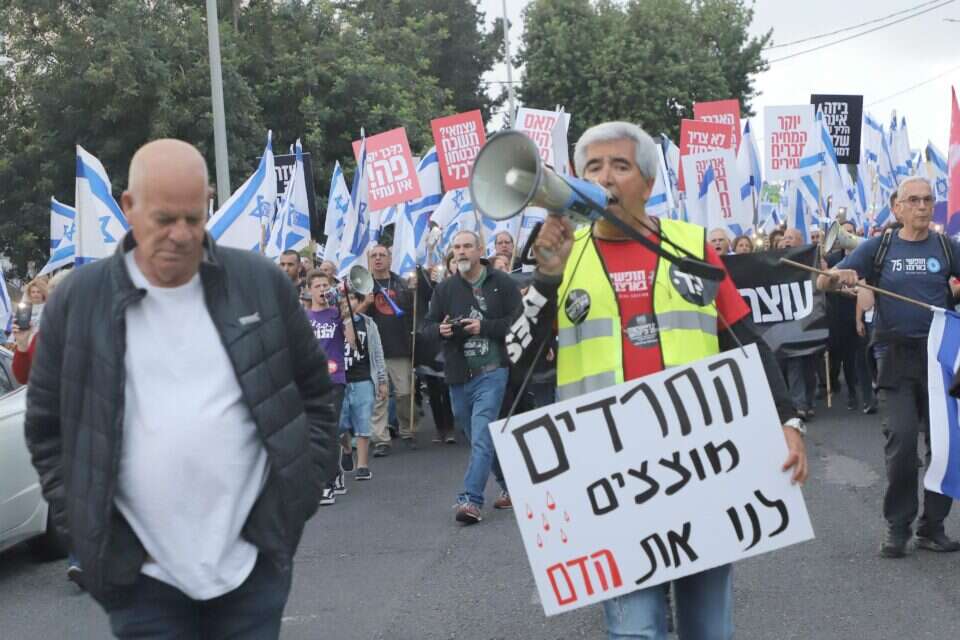
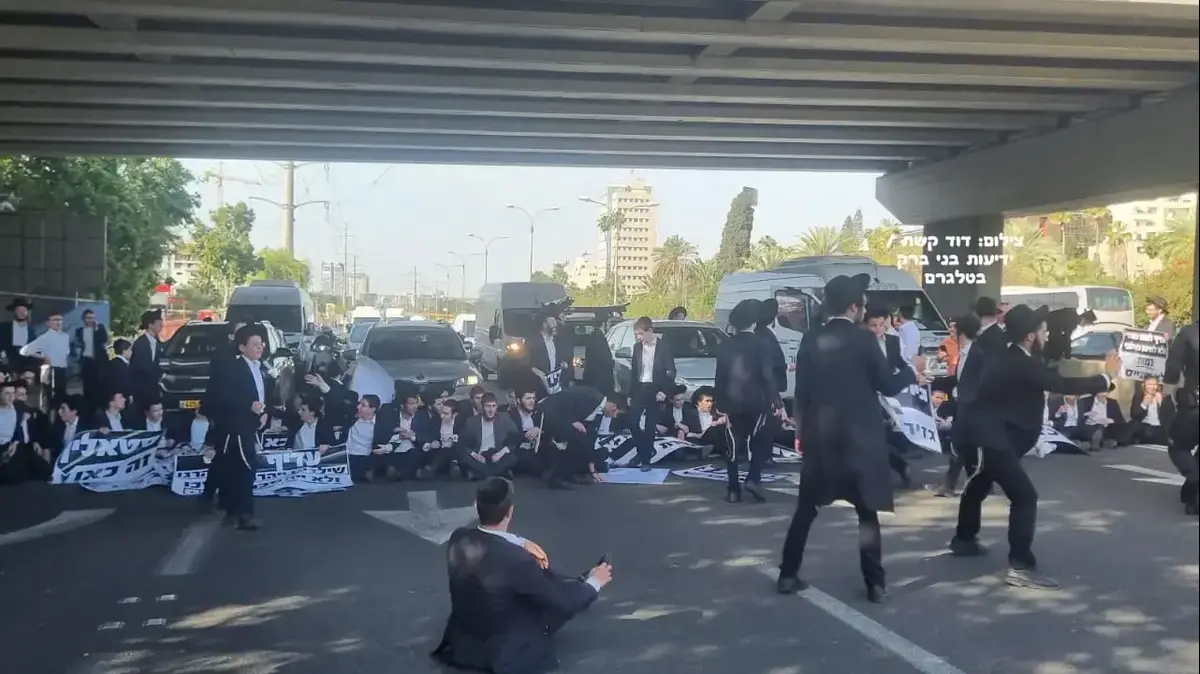
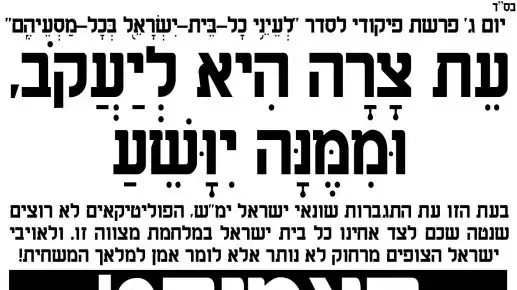
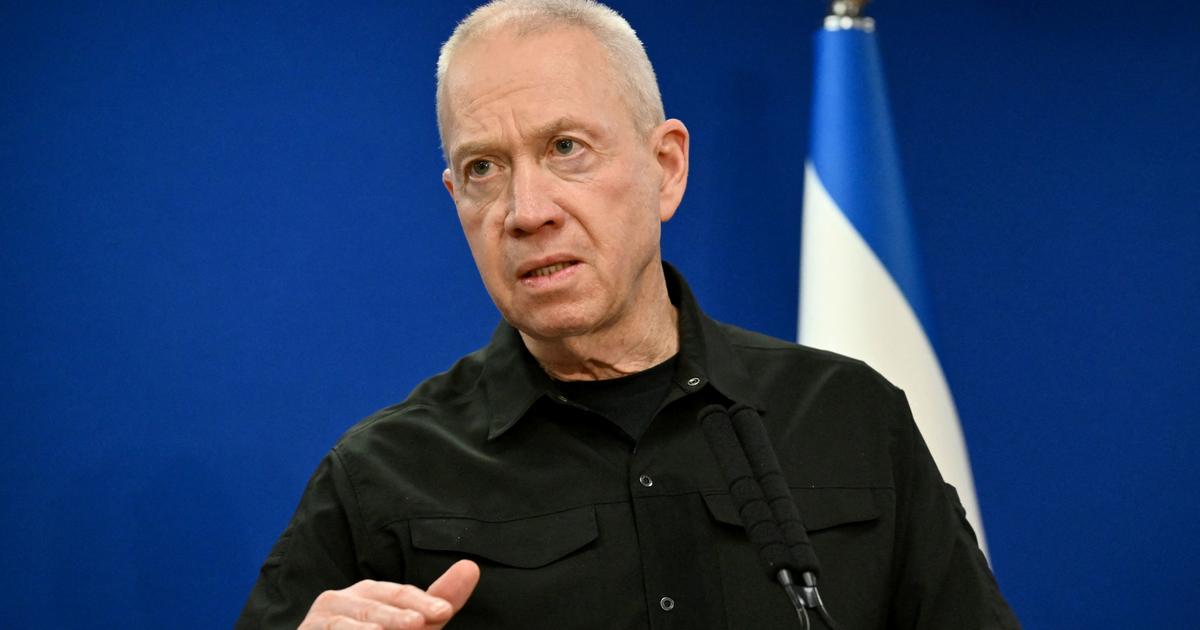
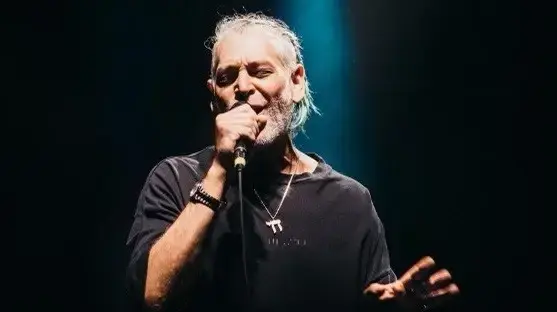
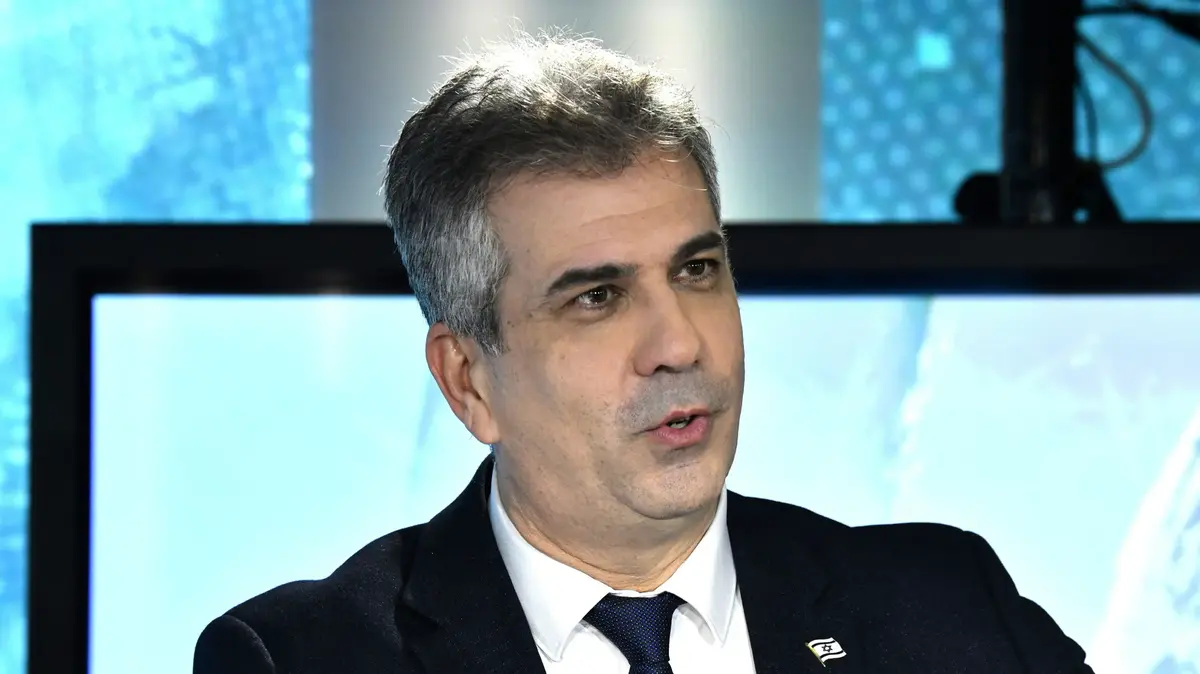
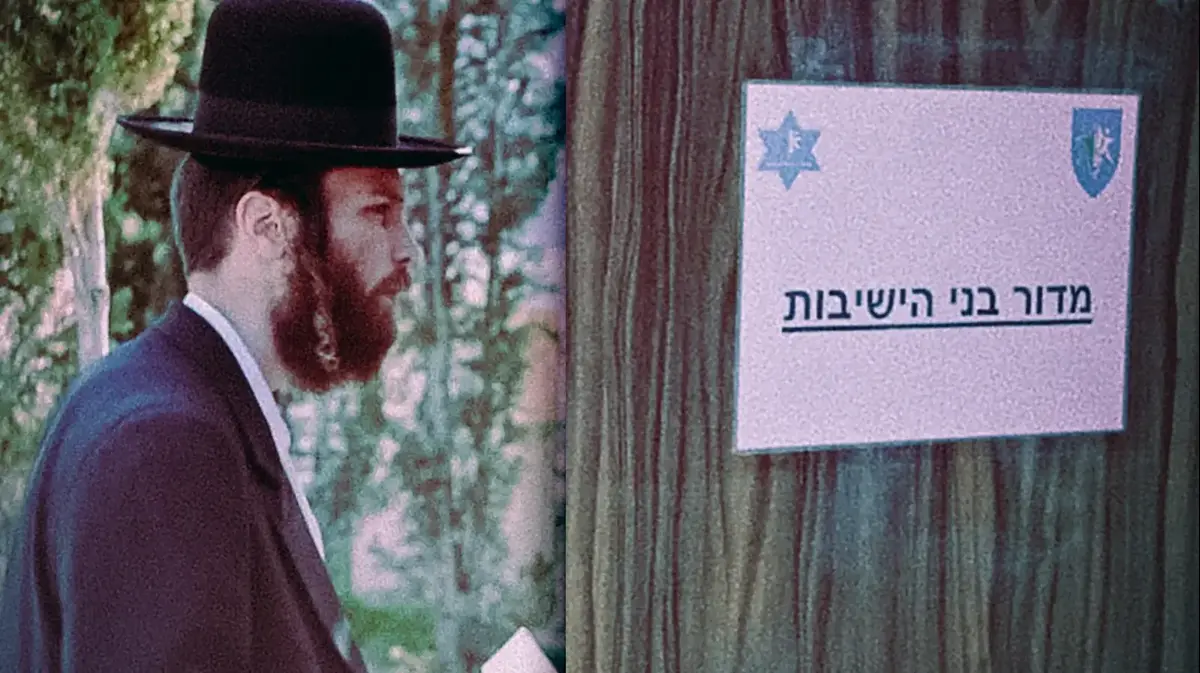

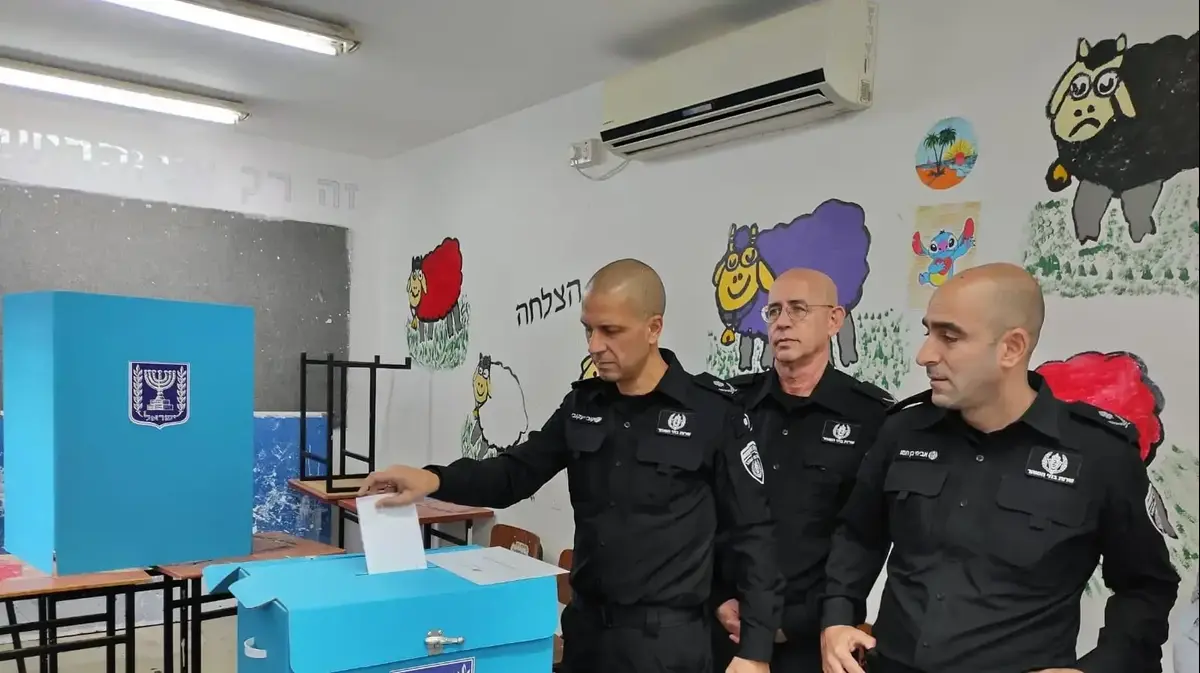




/cloudfront-eu-central-1.images.arcpublishing.com/prisa/B7F2F3HZ2JCUHDZJKAGKAXXPSU.jpg)